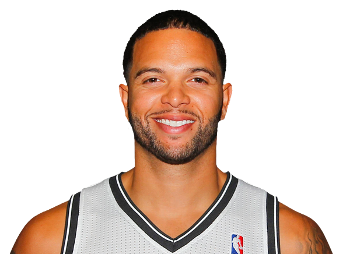
During the 2012-2013 season, the Brooklyn Nets had the third-highest team salary in the NBA: $83,431,858. The only two teams that were ahead of the Nets in that department were the Los Angeles Lakers (ouch) and the Miami Heat (currently one game from ouch).
The man who must pay all of Brooklyn’s dough? Nets Russian owner Mikhail Prokhorov. As Prokhorov’s burgeoning political career in Russia develops, Prokhorov has said that he has handed all of his business assets to partners, so that 100% of his time is devoted to politics. For a man worth an estimated $13 billion, $83,431,858 is less than one percent of his net worth.
But that bill for Nets owner Michael Prokhorov is much steeper than $83 million, according to our calculations. A cool $60 million steeper. The reason: he’s about to get whacked by a new system of luxury taxes, introduced in the new collective bargaining agreement in 2011.
Here’s how it works and our calculations on how much this will cost him.
Starting in 2013-2014, a new luxury tax system kicks in: instead of teams being charged $1 for every $1 that they exceed the luxury tax threshold as in years past, the league will start charging more money per dollar as teams exceed said threshold.
The math: for every dollar up to $5 million above the luxury tax, teams pay $1.50. For every dollar from $5 million up to $10 million, teams pay $1.75. From $10 million up to $15 million, $2.50. From $15 million up to $20 million, $3.25. For every $5 million above the tax level after $20 million, you add another 50 cents per dollar.
In 2012-2013, the luxury tax threshold was $70.307 million. Since teams were charged one dollar for every dollar that exceeded that number, the Nets paid $12,847,808 in taxes last season.
But what about 2013-2014, when the taxes become more punitive?
Right now — as the roster currently stands — the Nets have $86,340,931 committed to 12 players next season. This assumes that C.J. Watson picks up his player option and Kris Joseph’s non-guaranteed contract becomes guaranteed. But let’s assume what is likely to happen: Watson will leave the Nets and pursue more money than the $1.1 million he is owed next season. That would leave the Nets at $85,233,990 for 11 players.
Let’s also keep in mind some other very real possibilities: the Nets will likely use the full mini Mid-Level exception ($3.183 million) on Bojan Bogdanovic, and could sign Andray Blatche to a one-year deal worth $1,375,604. In addition, their first round pick (currently #22 overall) makes $1,082,200.
Add all of that up and you get a cap number that is $90,874,794, or $20,567,794 above the expected luxury tax threshold.
What would that cost in terms of luxury tax penalties? A whopping $47,129,228.
That probably won’t be Brooklyn’s highest luxury tax penalty, either. Once you’ve been in the luxury tax level three times — a definite possibility with Brooklyn’s current roster — you’re subject to what’s called the “repeater tax” — a harsher luxury tax penalty for repeat offenders. The harsher penalty adds up to an extra $1 per dollar above the luxury tax threshold. So hypothetically, if the Nets were a repeat offender in this coming season already, their penalty would be $67,697,022.
For the record: Brooklyn won’t be eligible for the repeater tax until 2015-16, and that’s only if they’re in the luxury tax again in 2013-14 and 2014-15 (likely). Every Nets contract expires by the end of the 2015-16 season, though Deron Williams has an early termination option that will likely keep him in Brooklyn through 2016-17.
One additional payment that does not count against the Nets’ cap or their luxury tax payments: the money owed to Travis Outlaw — a forward the Nets waived using the league’s one-time amnesty clause back in 2011. Because the Sacramento Kings are paying Outlaw $3 million per year, the Nets are required to pay him $4 million in each of the next two seasons (The Nets signed him to a 5-year deal worth $35 million in 2010).
So using these numbers (which are, of course, subject to change), Mikhail Prokhorov would spend $142,004,022 on Nets players (former and current) just next season alone.
Worth noting: that $143.9 million number does not take into account likely and unlikely bonuses that players may receive (also counted toward luxury tax), as well as the $3 million each team can use to facilitate trades each year. It also doesn’t include the boatload of money likely spent on other things, such as the next head coach, the General Manager, and all other Nets employees.
Team salary data thanks to ShamSports. All mistakes are The Brooklyn Game’s. An earlier version of this article incorrectly stated that Travis Outlaw would be owed roughly $5.9 million because of a rule interpretation. We have corrected all numbers and apologize for the error.

















